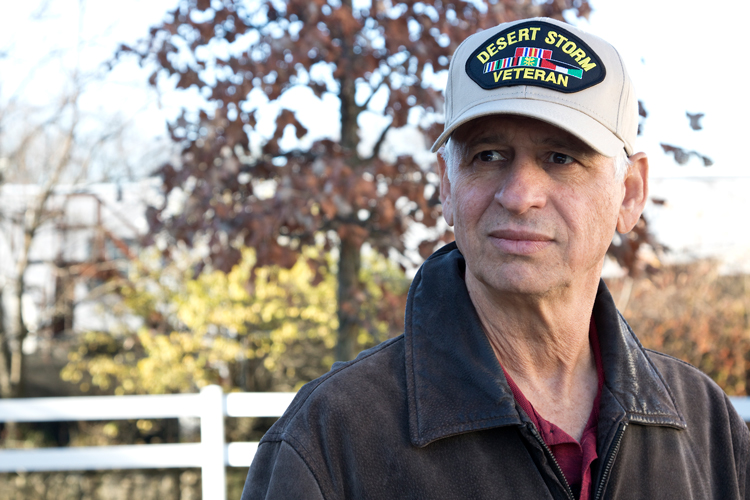Gulf War Illness is a constellation of chronic multisymptom illnesses born from the 1990 -1991 Persian Gulf War, operationally identified as Desert Shield/Desert Storm. During Operation Desert Shield/Storm, 700,000 U.S. Service Members deployed to the Persian Gulf to liberate Kuwait in response to Iraqi annexation. The toxicants that service members endured included anthrax/botulinum vaccinations, oil well fires, chemical/biological weapons, depleted uranium, noise, Chemical Agent Resistant Coating (CARC), pyridostigmine bromide (PB), pesticides, sand, dust, particulates, toxic embedded fragments, infectious diseases, heat injuries, and occupational hazards.
Service in the Persian Gulf War resulted in health-related conditions from environmental exposures. Over 30 years post-deployment, the U.S. Department of Veterans Affairs (VA) labeled myalgic encephalomyelitis/chronic fatigue syndrome (ME/CFS), irritable bowel syndrome (IBS), and fibromyalgia (FMS) as probable causes for the manifestations that have persisted.
For GWI-related clinical studies details, contact us at (954) 262-2870 or GWICTIC@nova.edu. If you are interested in joining a Gulf War Illness (GWI) trial, please complete the Recruitment Registry form.
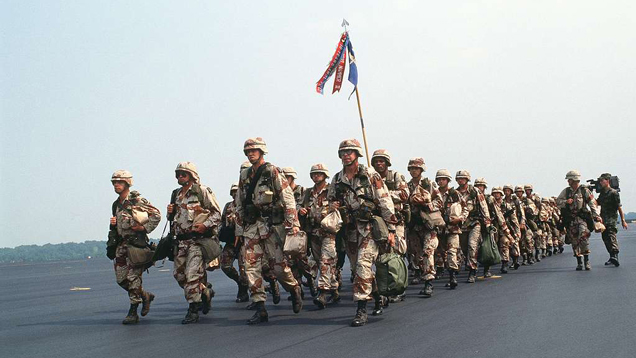
Gulf War Illness Clinical Trials and Interventions Consortium
The Gulf War Illness Clinical Trials and Interventions Consortium (GWICTIC) is a collaborative research group promoting an innovative, efficient and evidence-based process to perform clinical trials in veterans with Gulf War Illness. We strive to develop effective treatments to improve the outcome and quality of life for veterans with environmental exposure conditions related to deployment in Operation Desert Shield/Desert Storm.
GWICTIC focuses on phase 1 and phase 2 clinical trials in a collaborative group, engaging many of the clinical and preclinical experts in the field, in partnership with an advocacy coalition.
The studies build on the growing knowledge of the illness, as the investment in pathogenesis and preclinical studies of Gulf War Illness (GWI), funded by the Congressionally Directed Medical Research Programs (CDMRP) and Veterans Administration (VA) GWI programs, have yielded a deeper understanding of mediators, biologic subgroups and the utility of illness modeling to focus therapeutic strategies. Specifically, we aim to capitalize on the two previously funded GWIC consortia through CDMRP:
- Understanding GWI: An Integrative Modeling Approach (CDMRP # W81XWH-13-2-0085 Morris, NSU)
- Brain-Immune Interactions as the Basis of GWI: Gulf War Illness Consortium (GWIC) (CDMRP # W81XWH13-2-0072 Sullivan, BU)
Over the last decade, Dr. Klimas and her research team, as well as collaborators nationwide, have identified biomarkers of disease activity including, but not limited to, mitochondrial dysfunction, chronic oxidative stress, and neuroinflammation. Research teams have joined forces due to the complexity of GWI to produce innovative, efficient and evidence-based clinical trials.
It is with this understanding that treatment will rely on approaches that address more than a single mechanism of action, whether using single agents that target multiple organ systems and mechanisms of action or combination approaches that should have synergistic effects. Specifically, utilizing approaches that address chronic oxidative stress and neuroinflammation.
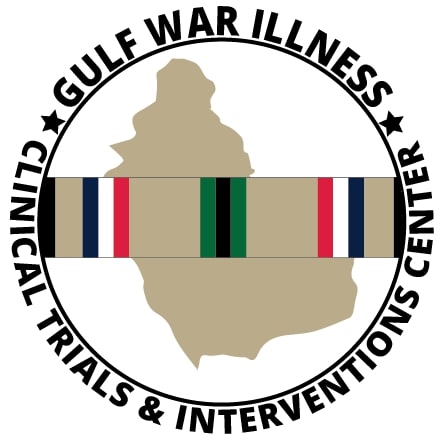
GWICTIC Leadership
The GWICTIC team at NSU brings together a dedicated group of researchers focused on Gulf War Illness. Led by Dr. Nancy Klimas, the team combines extensive experience in neuro-immunology, clinical trials, and program management to advance understanding and treatment for veterans suffering from this complex illness.
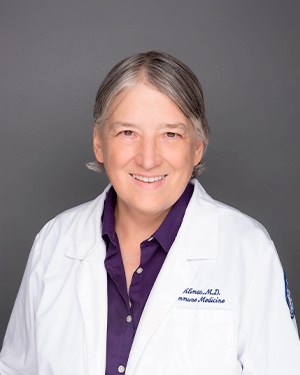 Nancy Klimas, M.D.
Nancy Klimas, M.D.
Principal Investigator, Director of the Operations Center
Dr. Klimas formed Nova Southeastern University’s Institute for Neuro-Immune Medicine (INIM), by bringing an interdisciplinary group of faculty together to study GWI and other complex medical conditions. She is Professor of Medicine and Chair of the Department of Clinical Immunology at NSU, and has been a staff physician and Director of Clinical Immunology Research at the Miami VAMC for 33 years. Dr. Klimas is Director of the UM/VAMC GWI and ME/CFS Research Center and GWI clinic. She is recognized internationally for her research and clinical efforts in multi-symptom disorders.
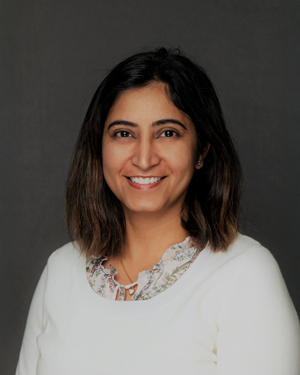 Amanpreet Cheema, Ph.D.
Amanpreet Cheema, Ph.D.
Director of Research Operations, Administrative Director
Dr. Cheema is an experienced scientist and the Program Director of Research Operations under the Gulf War Illness Clinical Trials and Interventions Center. She oversees clinical research development, implementation and operations. She has served as the Administrative Director of the NSU-based GWIC, coordinating the operations of the multi-site, multi-study consortium. She provides her expertise in biochemistry, nutrition and develops clinical research projects using nutraceuticals/dietary factors.
At NSU, she holds an Assistant Professor position at INIM, Department of Nutrition Science and Halmos College of Natural Sciences and Oceanography where she develops, and teaches graduate and undergraduate level courses as well as provides student research mentorship.
 Karen Kesler, Ph.D.
Karen Kesler, Ph.D.
Co-Principal Investigator, Director for Study Management & Biostatics Core
Dr. Karen Kesler is the Director of the Study Management Biostatics Core, based at RTI International. RTI provides administrative and logistical support, including study management and monitoring, regulatory support, clinical informatics and data management, clinical trial design, and biostatistical analysis.
 Kristina Aenlle, Ph.D.
Kristina Aenlle, Ph.D.
Associate Director, E.M. Papper Laboratory of Clinical Immunology
Assistant Professor, K. Patel College of Osteopathic Medicine
Dr. Kristina Aenlle’s diverse research background has taken her from the brain to the stem cell niche of the bone, always with the focus of the endocrine system signaling and aging. Her research goal is to improve and promote healthy aging by understanding the molecular changes that are occurring during aging. Alongside Dr. Klimas, she examines the molecular mechanism of HPA/HPG axis disruption in myalgic encephalomyelitis/chronic fatigue syndrome (ME/CFS) and Gulf War Illness (GWI). Dr. Aenlle's training in endocrinology, neuroscience, aging, and biochemistry provides a strong backbone upon which she can explore the molecular and endocrine disruptions underlying ME/CFS and GWI. Her expertise contributes to the growing field of these complex, neuroinflammatory illnesses, while focusing on aging. Dr. Aenlle's long-term goal is to develop a safe and efficient treatment to reboot the HPA/HPG axis and provide support during the aging process in ME/CFS and GWI.
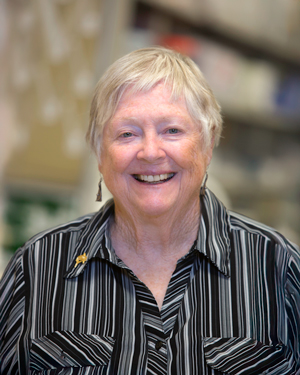 Mary Ann Fletcher, Ph.D.
Mary Ann Fletcher, Ph.D.
Biomarker Core
Dr. Fletcher is a leader in biomarker discovery and validation. Her laboratory has served as the core lab for local and national studies of GWI, as well as, the national biorepository site for the BU (Sullivan) GWIC. This Clinical Laboratory Improvement Amendments (CLIA)-certified high complexity laboratory has methods for functional assays and serologic, flow cytometric, and genomic studies.
 Karen Kesler, Ph.D.
Karen Kesler, Ph.D.
Co-Principal Investigator, Director for Study Management & Biostatics Core
Dr. Karen Kesler is the Director of the Study Management Biostatics Core, based at RTI International. RTI provides administrative and logistical support, including study management and monitoring, regulatory support, clinical informatics and data management, clinical trial design, and biostatistical analysis.
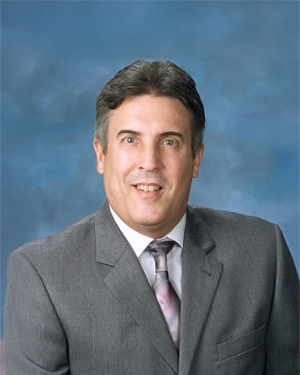 David Quesada, Ph.D.
David Quesada, Ph.D.
Computational Neuroscience, Institute for Neuro-Immune Medicine
Dr. David Quesada Saliba is an Associate Professor with the Department of Psychology and Neuroscience and is part of the Computational Systems Biology group at INIM. He holds a Ph.D. in Physics from the University of Havana, Cuba and an M.S. in Physics and Mathematics from Moscow State University, Lomonosov, Russian Federation. He has been in academia for over 30 years, working in various roles, and has focused more on biomedical problems over the last 8 years.
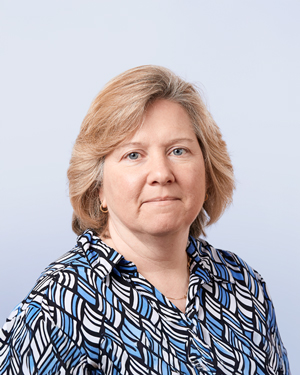 Kimberly Sullivan, Ph.D.
Kimberly Sullivan, Ph.D.
Boston University
Dr. Sullivan is a Research Associate Professor at the Boston University School of Public Health department of Environmental Health and the former Associate Scientific Director for the Congressionally directed Research Advisory Committee (RAC) on Gulf War Veterans' Illnesses. She is a behavioral neuroscientist and the Principal Investigator (PI) on the multi-site Gulf War Illness Biorepository Network (BBRAIN) designed to share biospecimens and foster collaboration with other GWI researchers. Dr. Sullivan has worked in the field of aging and behavioral neurotoxicology since 1992 and has also coordinated field studies in neurotoxicology (i.e., pesticides, methylmercury), neurobehavioral outcomes and the effects of physical stressors and genetic predisposition to disease on cognitive functioning in Alzheimer's disease, stroke and Parkinson disease.
Boston Biorepository, Recruitment & Integrated Network for GWI
 Wes Ashford, M.D., Ph.D.
Wes Ashford, M.D., Ph.D.
Palo Alto WRIISC
Dr. Ashford has been the Director of the War Related Illness and Injury Study Center (WRIISC) site, based at the VA Palo Alto Health Care System, since 2007. Dr. Ashford has a strong interest in understanding the health concerns of Veterans and how to manage their numerous unexplained symptoms, including memory problems and severe chronic pain. His current research is focused on the improvement of the assessing multiple illnesses in Veterans, particularly pain, cognitive impairment, sleep disruption/chronic fatigue, autonomic dysregulation, and non-pharmacologic interventions including rTMS.
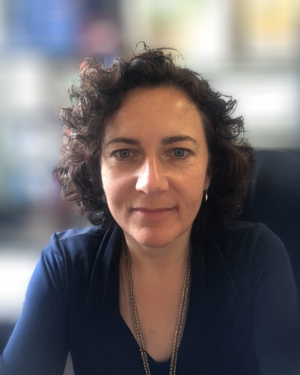 Helena Chandler, Ph.D.
Helena Chandler, Ph.D.
VA New Jersey Healthcare System (WRIISC)
Dr. Chandler joined the WRIISC as a postdoctoral fellow in 2002, after completing her doctoral degree in Clinical Psychology at Virginia Tech. Dr. Chandler has 20 years of experience applying behavioral medicine principles to the Veteran population and her research and clinical specialty is in those Veterans with medically unexplained and deployment-related health concerns. Dr. Chandler has received federal funding for studies addressing issues of Gulf War Illness, Chronic Multi-symptom Illness, delivery of healthcare services, and the impact of mental health conditions (particularly PTSD) on physical symptoms.
Dr. Chandler has a particular research interest in three interconnected areas of research: Post-Traumatic Stress Disorder (PTSD), Medically Unexplained Symptoms (MUS), and Healthcare Utilization. Dr. Chandler’s current primary role is to lead the NJ WRIISC in advancing and disseminating knowledge about deployment related health issues and environmental exposure concerns.
 Drew Helmer, M.D., M.S.
Drew Helmer, M.D., M.S.
Michael E. DeBakey VA Medical Center/Baylor College of Medicine
Dr. Helmer is the Deputy Director and Investigator at the Center for Innovations in Quality, Effectiveness & Safety at Michael E. DeBakey VA Medical Center in Houston, TX. He is also a Professor in the Department of Medicine and Section of Health Services Research at Baylor College of Medicine. Dr. Helmer is an expert in military exposures and deployment-related health concerns, the impact of combat deployment on the health and well-being of military service members. In addition to caring for Veterans and educating providers about post-deployment health, Dr. Helmer studies healthcare utilization and outcomes important to deployed Veterans including chronic pain, exposure concerns, depression and suicidal ideation, mild traumatic brain injury, and sexual health concerns. He has published more than 100 peer-reviewed articles and a book for a lay audience on these topics.
 Nancy Klimas, M.D.
Nancy Klimas, M.D.
South Florida
Dr. Klimas formed Nova Southeastern University’s Institute for Neuro-Immune Medicine (INIM), by bringing an interdisciplinary group of faculty together to study GWI and other complex medical conditions. She is Professor of Medicine and Chair of the Department of Clinical Immunology at NSU, and has been a staff physician and Director of Clinical Immunology Research at the Miami VAMC for 33 years. Dr. Klimas is Director of the UM/VAMC GWI and ME/CFS Research Center and GWI clinic. She is recognized internationally for her research and clinical efforts in multi-symptom disorders.
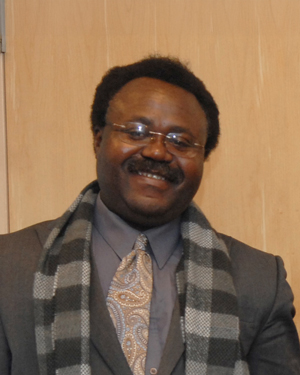 Dikoma C. Shungu, Ph.D.
Dikoma C. Shungu, Ph.D.
Weill Cornell Medical College
Dr. Shungu is the Professor of Physics in Radiology at Weill Cornell Medicine and Director of the Laboratory for Advanced MRS Research, which focuses on developing magnetic resonance-based neuroimaging technologies for clinical diagnosis and applications in neuroscience research. A major focus of this research is on the discovery of noninvasive biomarkers that can aid in the diagnosis, monitoring and advancing the understanding of neurological and neuropsychiatric disorders. Dr. Shungu is a 2010 Fellow of the International Society for Magnetic Resonance in Medicine (ISMRM), and a 2016 Distinguished Investigator of the Academy for Radiology & Biomedical Imaging Research.
 Kimberly Sullivan, Ph.D.
Kimberly Sullivan, Ph.D.
Boston University
Dr. Sullivan is a Research Associate Professor at the Boston University School of Public Health department of Environmental Health and the former Associate Scientific Director for the Congressionally directed Research Advisory Committee (RAC) on Gulf War Veterans' Illnesses. She is a behavioral neuroscientist and the Principal Investigator (PI) on the multi-site Gulf War Illness Biorepository Network (BBRAIN) designed to share biospecimens and foster collaboration with other GWI researchers. Dr. Sullivan has worked in the field of aging and behavioral neurotoxicology since 1992 and has also coordinated field studies in neurotoxicology (i.e., pesticides, methylmercury), neurobehavioral outcomes and the effects of physical stressors and genetic predisposition to disease on cognitive functioning in Alzheimer's disease, stroke and Parkinson disease.
Boston Biorepository, Recruitment & Integrated Network for GWI
Palo Alto (VA): War Related Illness and Injury Study Center Home (va.gov)
PI: Wes Ashford | wes.ashford@va.gov | (650) 852-3316
Houston (VA): https://www.houston.hsrd.research.va.gov/bios/helmer.asp
PI: Drew Helmer | drew.helmer@va.gov | (713) 440-4452
New Jersey (VA): https://www.va.gov/new-jersey-health-care/staff-profiles/helena-chandler/
PI: Helena Chandler | helena.chandler@va.gov | (973) 676-3580
Boston University: https://sites.bu.edu/bbrain/
PI: Kimberly Sullivan | tty@bu.edu | (617) 358-2168
Cornell (Imaging Site): https://vivo.weill.cornell.edu/display/cwid-dcs7001
PI: Dikoma C. Shungu | dcs7001@med.cornell.edu
RTI International: https://www.rti.org/
Person in charge: Karen Kesler | kkelser@rti.org
GWICTIC Studies
Multi-Site/National
This Phase Il study aims to target the immune and neurocognitive defects tied to GWI,
likely attributable to chemical and environment exposures in wartime efforts.
Principal Investigator: Amanpreet Cheema, Ph.D., NSU
For more information, please contact us at (954) 262-2870 or email GWICTIC@nova.edu.
Visit ClinicalTrials.gov for study record details.
This open-label dose-comparison study utilizes a combination therapy to assess efficacy
in homeostasis reset.
Principal Investigator: Nancy Klimas, M.D., NSU & Miami VA Healthcare System
For more information, please contact us at (954) 262-2870 or email GWICTIC@nova.edu.
Visit ClinicalTrials.gov for study record details.
Local/South Florida
This open-label dose-comparison study utilizes a combination therapy to assess efficacy
in homeostasis reset.
Principal Investigator: Nancy Klimas, M.D., NSU & Miami VA Healthcare System
For more information, please contact us at (954) 262-2870 or email GWICTIC@nova.edu.
Visit ClinicalTrials.gov for study record details.
In this multi-site trial, we will use a randomized, double-blind, placebo-controlled
study design to test whether 300 mg of Nicotinamide Riboside (NR) can achieve the
primary objective of increasing plasma NAD+ levels in participants with Gulf War Illness
(GWI).
Principal Investigator: Nancy Klimas, M.D., NSU & Amanpreet Cheema, Ph.D., NSU
For more information, please contact us at (954) 262-2870 or email GWICTIC@nova.edu.
Visit ClinicalTrials.gov for study record details.
In this study, we aim to reset the underlying mechanisms of disease by suppression of the autoantibody production and inflammatory response using a b-cell suppression therapy (BCST).
Principal Investigator: Nancy Klimas, M.D., NSU & Miami VA Healthcare System
For more information, please contact us at (954) 262-2870 or email GWICTIC@nova.edu.
Summary: The purpose of this study is to confirm the previous positive findings of a dietary treatment using low glutamate diet on the symptoms of Gulf War Illness in a larger group of veterans with Gulf War Illness (GWI).
Principal Investigator: Amanpreet Cheema, Ph.D., Nova Southeastern University
For more information, please contact us at (954) 262-2870 or email GWICTIC@nova.edu.
Visit ClinicalTrials.gov for study record details.
Other Collaborative Studies
Summary: Establish BBRAIN retrospective and prospective biorepository for GWI by data mining from BBRAIN collaborators and recruiting from four prospective resource sites.
Principal Investigator:Kristina Aenlle, Ph.D., Nova Southeastern University
For more information, please contact us at (954) 262-2870 or emailGWICTIC@nova.edu.
Summary: This study aims to develop a simple, low-cost diagnostic test, using blood or saliva, to identify Gulf War Illness (GWI) in veterans. The test is designed to track brain injury over time by detecting specific proteins related to the nervous system, potentially leading to better treatment options and disability ratings for veterans.
Principal Investigator:Kristina Aenlle, Ph.D., Nova Southeastern University
For more information, please contact us at (954) 262-2870 or emailGWICTIC@nova.edu.
Principal Investigator:Kristina Aenlle, Ph.D., Nova Southeastern University
For more information, please contact us at (954) 262-2870 or emailGWICTIC@nova.edu.
Principal Investigator:Kristina Aenlle, Ph.D., Nova Southeastern University
For more information, please contact us at (954) 262-2870 or emailGWICTIC@nova.edu.
Completed Studies
Principal Investigator: Nancy Klimas, M.D., Miami VA Healthcare System
Visit ClinicalTrials.gov for study record details.
This is a systematic assessment and characterization of the therapeutic effects of drugs that impact a specific list of therapeutic targets which is based on prior research. This study is located at Miami VA Medical Center. We are recruiting Veterans with Gulf War Illness and Gulf War era healthy controls.
Visit NIH Reporter for study record details.
In this study, we are using microarray, a technique which measures expression levels of large numbers of genes, to help better understand and identify the likely causes of Gulf War Illness. This method allows researchers to study different genes that affect how the body reacts to rest and exercise and how these differences affect the immune system, endocrine system and brain. Location: Miami VA Medical Center & University of Miami. We are recruiting male and female Operation Desert Shield/Desert Storm veterans located in the Miami-Dade and Broward County areas.
Visit NIH Reporter for study record details.
Visit ClinicalTrials.gov for study record details.
The purpose of this study was to determine if treatment with ubiquinol, a form of coenzyme Q10, improves the physical function of men and women veterans suffering from Gulf War Illness.
Frequently Asked Questions
How can I participate? To get started, fill out the survey and opt in using our GWI Registry Survey and then we will contact you soon!
Do I qualify to become a participant? If you are a veteran of the Persian Gulf War (1990-1991), you are welcome to apply.
Who can I speak to for more information? Please call (954) 262-2870 or email GWICTIC@nova.edu if you are interested in hearing more about our GWI research or how you can participate.
Do I have to live in Florida to participate? No. INIM conducts several decentralized studies. In that case, we conduct remote monitoring sessions and will mail you the necessary supplies. Any appointments can be made near you.
How long has GWI been studied? NSU has studied Gulf War Illness for almost 20 years.
What if I change my mind during the study? If you choose to withdraw, we will not contact you again. If you receive any further requests to join the study, please contact the study team at (954) 262-2870
Get in Touch
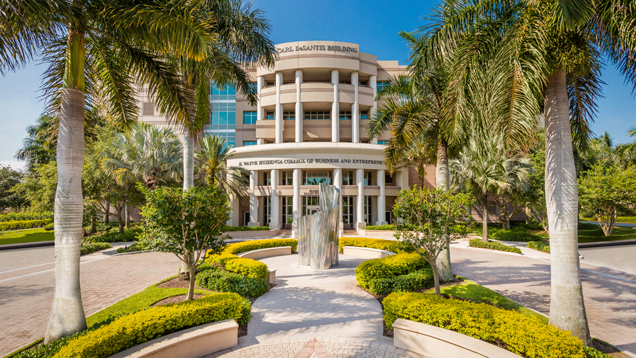
Fort Lauderdale/Davie
Center for Collaborative Research, 4th Floor
7595 SW 33rd Street
Fort Lauderdale, FL 33314
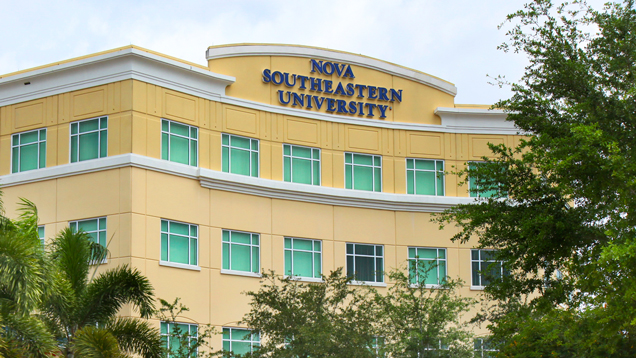
Kendall
Kendall Village Center, Professional Arts Bldg., Suite 111
8501 SW 124th Avenue
Miami, FL 33183
Phone Number: (954) 262-2870
Office Hours: Monday - Friday, 9:00 a.m. - 5:00 p.m.
Connect with INIM on Social
For more information on becoming a donor or joining our newsletter, please email mcarr1@nova.edu.

